特邀講席 Invited speech
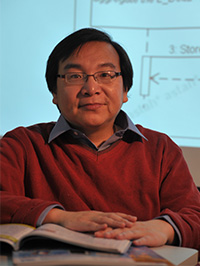
Abstract:
As software technology plays an ever increasingly important role in today's society and in the foreseeable future, Taiwan's Computer Science research and education is actually at a critical juncture, which, in my opinion, calls for a serious overhaul for its directions and contents. In this talk, I will first share with the audience my observations of the pitfalls of Taiwan's Computer Science research and education, and then offer some suggestions on how to improve upon them so that Taiwan stands a chance to effectively compete with the Computer Science community in the world.
個人簡介:
闕志克博士目前擔任工研院「資訊與通訊研究所」所長及紐約石溪大學電腦科學系教授,他曾擔任「雲端運算行動應用科技中心」的主任、賽門鐵克(Symantec)美國總部核心研究實驗室總監及美國國防先進研究計畫署(DARPA)策劃顧問,在系統軟體、網路架構與資訊安全的創新應用上研究成果豐碩,發表過相關學術文章超過220篇,並多次獲得國際性最佳論文獎殊榮。
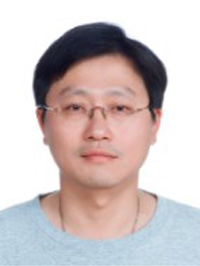
摘要
The emerging of various non-volatile memory has triggered rounds of innovation and also evolution of system software. The borderline between hardware and software designs become blurred in many cases. It is also getting more and more necessary for software-hardware co-design, especially for embedded systems. In this talk, software designs for flash memory and PCM in storage systems and memory management will be exploited in system optimization. In particular, we will present how to accelerate the programming of flash-memory chips, create more reliable flash-memory blocks, and reduce data transfers between the main memory and the storage. The talk will be concluded with concerns over the manipulation of data over non-volatile memory.
個人簡歷
郭大維教授 於1986年畢業於國立臺灣大學資訊工程學系, 於1994年在美國德州大學奧斯汀分校電腦科學系取得博士學位。郭教授現職為中央研究院資訊科技創新研究中心特聘研究員兼主任、與國立臺灣大學資訊工程學系/網 媒所 特聘教授。郭大維教授目前擔任科技部資訊工程學門召集人(2013-2015),曾任國立臺灣大學資訊工程學系系主任/所長與電機資訊學院副院長。郭大維教授之研究領域為嵌入式系統、即 時系統與非揮發性記憶體儲存與記憶體管理軟體設計。 郭大維教授為IEEE Fellow,著有超過200篇 已接受於國內外期刊與國際會議之學術論文。郭大維教授之學術榮譽包括三次國科會/科技部傑出研究獎與中央研究院年輕學者研究著作獎,並曾榮獲中華民國十大傑出青年與台灣大學教學傑出獎。郭大維教授現任ACM Transactions on Cyber-Physical Systems之Editor-in-Chief,並擔任許多學術會議或期刊不同職位,如IEEE Transactions on Industrial Informatics、ACM Transactions on Design Automation of Electronic Systems與IEEE Embedded Systems Letters之Associate Editor,曾任頂尖國際會議IEEE Real-Time Systems Symposium (RTSS) 之Program Chair與General Chair。
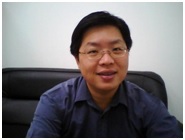
摘要
個人化推薦系統(Recommender System/Recommendation System)是一種基於使用者紀錄或偏好進行資料收集及分析,藉此分析結果逕行主動式資訊推薦的資訊服務系統,推薦系統在提昇個人化資訊服務品質上扮演重要的角色。傳統上推薦系統的設計著重於將資料庫中使用者的相關記錄進行分析,這也是資料探勘(Data Mining)技術的應用,並衍生出內容導向、協同導向等不同演算法為基礎的推薦系統。隨著網際網路及電子商務的普及,許多使用者的行為資料不在只是單純被紀錄於結構性的資料庫之中,而是以文字等非結構的方式被紀錄在網際網路之中,針對這些非結構的資料,文字探勘(Text Mining)的技術隨之發展,並可被應用於分析使用者的偏好,進而設計推薦系統。
近年來神經資訊學(Neuro Information Systems, NeuroIS)快速發展,認為資訊系統的開發可以結合神經科學的理論與工具,以更貼近人類認知行為模式來開發資訊系統。神經資訊學應用人體的感測設備,包括功能性磁振造影(functional Magnetic Resonance Imaging, fMRI)、正子電腦斷層造影(Positron Emission Tomography, PET)、腦電波儀(Electroencephalography, EEG)等收集受測者的大腦認知訊號,並以此進行資訊系統相關研究。我們嘗試將使用者的腦波訊號納入推薦系統的演算法設計之中,期望能提供更貼近使用者偏好的推薦服務。腦波是一種生物訊號,是人們大腦在進行某種活動時自然產生的一種訊號,可透過腦電波儀進行量測。我們首先以實驗法收集受測者腦波訊號與其興趣偏好資料,並利用類神經網路建立腦波與使用者偏好之間的關聯模型,進而以此關聯資訊為核心,開發一套結合腦波與內容導向資訊過濾為基礎的文章推薦系統,最後並以實驗法驗證本推薦系統的推薦精準度。研究結果發現,我們所開發的文章推薦系統能確實提昇推薦精準度,也證明了腦波能夠有效的被利用在推薦系統的設計上。
個人簡歷
陳灯能博士現任國立屏東科技大學資訊管理系副教授,曾兼任電子計算機中心主任、組長。陳博士於1995年取得國立交通大學資訊工程系學士學位,1997、2004年分別取得國立中山大學資訊管理碩士、博士學位,學術背景兼具資訊工程與資訊管理領域,主要研究方向包括知識工程、知識管理、電子商務與人工智慧,目前主要研究題目為利用腦波訊號建構個人化資訊推薦系統。
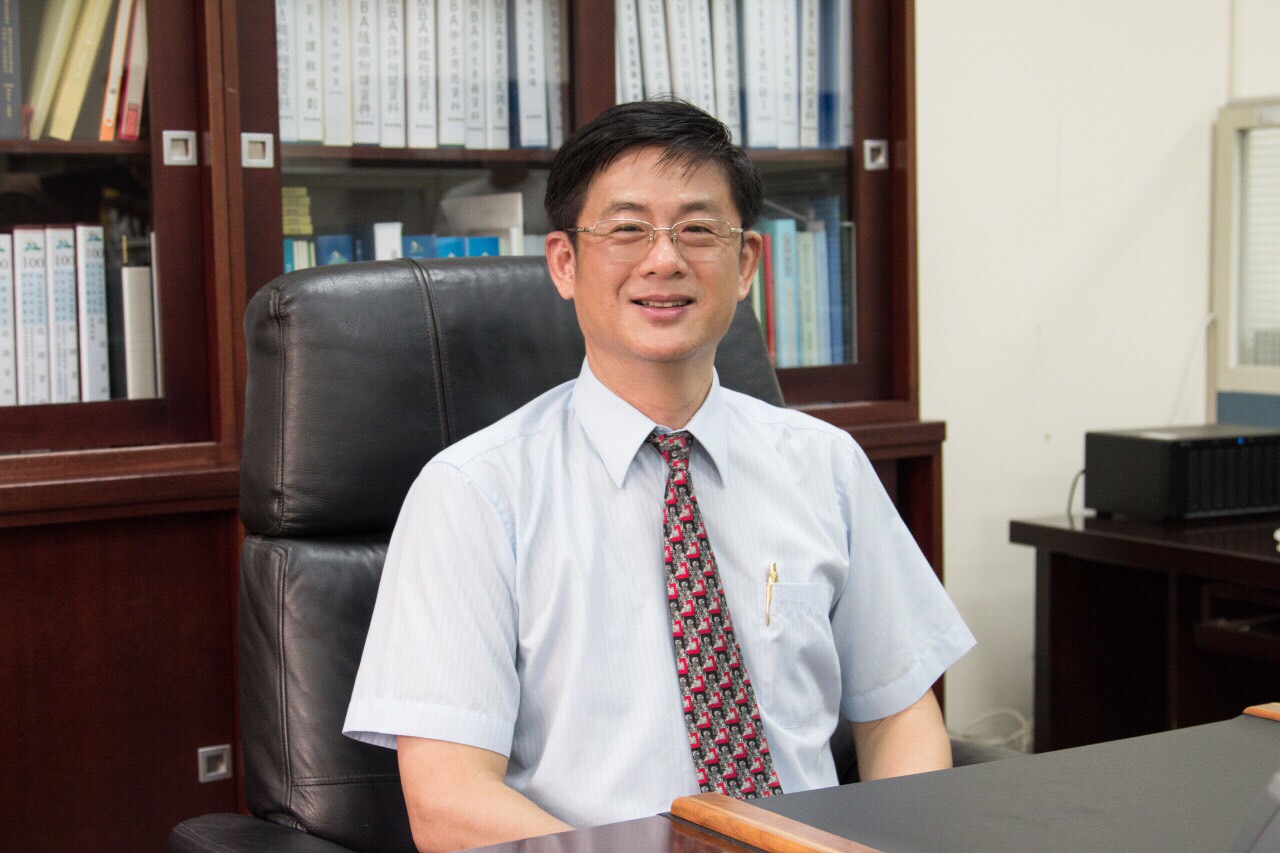
摘要
(1) 物聯網概述: 物聯網起源與定義,以及物聯網應用範例說明。(2) 物聯網技術簡介: 物聯網階層架構、物聯網核心技術以及物聯網推動組織標準說明。(3) 農業物聯網應用範例: 包括智慧葡萄栽培計劃(西班牙)、中農水產養殖系統(大陸)、植物工廠(日本)、屏東優質水產品網路行銷銷售服務平台、動物健康與安全管理以及紅樹林生態感測系統(屏科大資管系)等農業物連應用系統案例說明。
個人簡歷
龔旭陽(Hsu-Yang Kung) 博士 自1992年起任職於國立屏東科技大學資訊管理系,曾任資管系系主任、電算中心主任,現職為該系教授兼管理學院院長。龔博士畢業台灣國立成功大學資訊工程系,研究興趣與專長主要為物聯網技術與應用、雲端運算、行動式通訊、農業資訊系統、車載資通訊系統、多媒體通訊應用系統、資訊管理系統等。
龔博士致力於開放式資訊應用系統研發與人才培育,研究績效截至目前為止共發表了 74篇期刊論文,202 篇研討會論文,其中包括曾獲全國研究論文獎11件,並於 2013 年合著出版一本網路通訊相關教科書。另龔博士研究成果曾獲6 次國科會自由軟體計畫績優團隊獎、2006年第四屆Linux 黃金企鵝獎人才貢獻獎、2005年第三屆Linux 黃金企鵝獎研發創新獎,以及國立屏東科技大學98年度管理學院傑出研究教師獎等獎項。其他研究績效包括全國與大陸發明專利 24 件、教學與人才培育績效包括全國性傑出與優良教材設計 2 件。此外指導學生參加國際性系統競賽獲獎 5 件,全國性專題與系統設計競賽獲獎 79件。龔博士自 2000年起連續 16 年獲得國立屏東科技大學研究獎勵,並獲98年度國立屏東科技大學傑出研究教師(管理學院),另榮獲99~103年度5次國科會補助大專校院獎勵特殊優秀人才第一級獎勵。相關國科會整合型計畫成果獲國科會開放軟體計畫辦公室推薦參加" 2013年台北國際發明暨技術交易展"與103年度教育部技專院校優質研發成果獎等。此外龔博士亦受邀擔任IEEE Technology and Engineering Education等國際期刊客座編輯,以及國內外期刊(包括IEEE Transactions on Information Technology in Biomedicine等)與國內外研討會論文審稿委員。
龔博士社會服務經歷,含擔任教育部系所評鑑委員、教育通訊改進計畫訪視委員、國科會專題研究計畫審查委員、研究計畫複審委員、屏東縣政府資訊總顧問、東縣有線廣播電視系統費率委員會委員、屏東縣公共圖書館輔導推動委員會訪視委員、縣市政府資訊系統評選委員、經濟部工業局研發貸款技審會委員、經濟部技審委員會專家、經濟部金屬中心學界協助中小企業科技關懷計畫輔導專家、經濟部技術處SBIR計畫資通領域主審委員、行政院勞委會職訓局諮詢輔導團委員與計畫審查與評鑑委員、科學工業園區人才培育計畫訪視委員以及台灣消費者保護協會(台灣消保會)資訊科技專業委員會等。
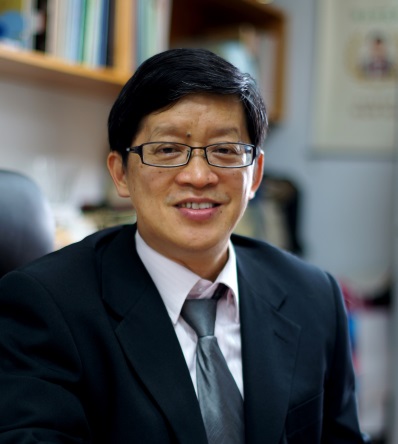
In the past three years, we have conducted a project entitled: “Development of Basic Technologies for Creative 3D Contents and 3D Display Systems.” In this talk, I will briefly overview the project, which is composed of three important parts including 3D display engine, 3D cloud GPU, and 3D content generation. Currently, we propose a category of centralized texture-depth packing (CTDP) formats for delivering 3D video services. With AVS2 and HEVC video coder, the proposed CTDP formats show better objective and subjective visual quality in 2D and 3D displays than the 2DDP format. If the texture and depth frame are packed in the CTDP formats and then coded by the HEVC, which is called CTDP-HEVC. By simulations, the CTDP-HEVC is compared with the 3D-HEVC, the latest 3D video coding standard. Before the availabilities of 3D-HEVC broadcasting systems, we believe that the proposed CTDP formats could help to deliver 3D videos in the current 2D broadcasting systems simply and efficiently.
Autobiography:
Jar-Ferr Yang received his BS degree from the Chung-Yuan Christian University in 1977, MS degree from the National Taiwan University, Taiwan in 1979, and Ph. D. degree from the University of Minnesota, Minneapolis, USA in 1988. He was the Chairperson of Graduate Institute of Computer and Communication Engineering during 2004 – 2008 and the Director of the Electrical and Information Technology Center 2006 -2008 in NCKU. He was the Associate Vice President for Research and Development of the NCKU. Currently, he is a Distinguished Professor and the Director of Technologies of Ubiquitous Computing and Humanity (TOUCH) Center supported by National Science Council (NSC), Taiwan. Furthermore, he is and the Director of Tomorrow Ubiquitous Cloud and Hypermedia (TOUCH) Service Center.
During 2004-2005m he was the Distinguished Lecturer Program of the IEEE Circuits and Systems Society. In 2008, he received the NSC Excellent Research Award. In 2010, he received the Outstanding Electrical Engineering Professor Award of the Chinese Institute of Electrical Engineering, Taiwan. He was the Chairman of IEEE Tainan Section during 2009-2011. Currently, he is an Associate Editor of EURASIP Journal of Advances in Signal Processing and an Editorial Board Member of IET Signal Processing. He has published over 104 journal and 167 conference papers. He is a Fellow of IEEE.
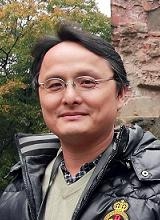
Abstract:
Thyroid region segmentation and volume estimation is a prerequisite step to diagnosing the pathology of the thyroid gland. In clinical, the thyroids are hand-marked from medical images such ultrasound (US) images or computerized tomography (CT) images. This approach relies heavily on the experience of the physicians and is very time consuming. In this talk, two computational intelligences were applied to segment the thyroid gland and to estimate the volume form CT and US, respectively. Experimental results show that the proposed method can effectively segment thyroid glands and estimate thyroid volume.
Autobiography:
Chuan-Yu Chang (張傳育) received the Ph.D. degree in electrical engineering from National Cheng Kung University, Taiwan, in 2000. He is currently a Distinguished Professor at the Department of Computer Science and Information Engineering and Dean of Research & Development, National Yunlin University of Science and Technology. He serves as an Associate Editor of the Multidimensional Systems and Signal Processing, and International Journal of Control Theory and Applications. His current research interests include computational intelligence and their applications to medical image processing, wafer defect inspection, emotion recognition, and pattern recognition. In the above areas, he has more than 150 publications in journals and conference proceedings.
Dr. Chang received the excellent paper award of the Image Processing and Pattern Recognition society of Taiwan in 1999, 2001, and 2009. He was also the recipient of the Best Paper Award in the International Computer Symposium in 1998 and 2010, the Best Paper Award in the Conference on Artificial Intelligence and Applications in 2001, 2006, 2007, and 2008, and the Best Paper Award in National Computer Symposium in 2005. He received the Best Paper Award from the Symposium on Digital Life Technologies in 2010, 2012, and 2014. He also received the Best Paper Award from the Ninth International Conference on Intelligent Information Hiding and Multimedia Signal Processing in 2013. He served as the Program co-Chair of 2007 Conference on Artificial Intelligence and Applications, 2009 Chinese Image Processing and Pattern Recognition Society (IPPR) Conference on Computer Vision, Graphics, and Image Processing, 2010-2015 International Workshop on Intelligent Sensors and Smart Environments, and the third International Conference on Robot, Vision and Signal Processing (RVSP 2015). He served as General co-chair of 2012 International Conference on Information Security and Intelligent Control, 2011-2013 Workshop on Digital Life Technologies, and Finance co-chair of 2013 International Conference on Information, Communications and Signal Processing.
He is a Life Member of IPPR, TAAI, and a senior Member of IEEE. He is the chair of IEEE Signal Processing Society Tainan Chapter and the Representative for Region 10 of IEEE SPS Chapters Committee.
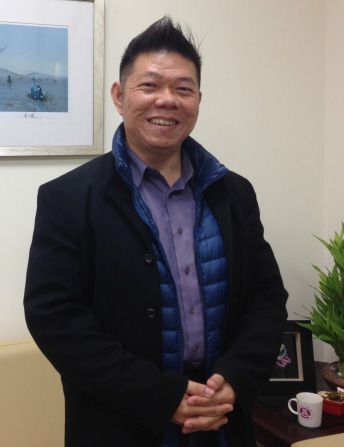
摘要
在Web2.0時代,情緒智慧 (Emotional Intelligence) 已成為學習與教育領域愈來愈重要的議題。透過情緒的偵測與判斷,我們更能掌握學習者的學習與情緒狀態。在相關議題中,情感運算 (Affective Computing) 經由文字、表情、聲調、生理訊號等線索,可以有效識別使用者的情緒。這樣的技術,經常運用在機器人 (Robotics) 的情緒產生與情緒表達上,並可以扮演智慧型數位家教 (Intelligent e-Tutor) 與代理人(Agent) 的角色,透過學習同伴 (Learning Companion) 的功能,達到情感學習(Affective Learning),協助使用者在學習等方面的改善。常見的實施平台,是運用人工智慧技術設計的智慧型家教系統 (ITS; Intelligent Tutoring System),進而情感式家教系統 (ATS; Affective Tutoring System)。此外,計算語言學 (Computational Linguistics) 與自然語言處理 (Natural Language Processing) 同時也提供了情感運算裏情緒識別的重要線索。本次演講將分享本實驗室在ATS上的一些發展。除此之外,本演講將介紹一些展示科技與數位藝術的議題,諸如:建築物光雕、錄像投影、互動裝置、數位表演藝術、體感偵測、眼動分析、擴增實境、浮空投影等。
個人簡歷
林豪鏘為國立清華大學資訊科學博士,台中一中畢業。目前擔任國立臺南大學學務長,並曾擔任國立臺北商業大學創新經營學院院長,並任教於國立臺南大學 (數位學習科技系教授),並擔任數位藝術與互動設計實驗室主持人。在此之前,他曾先後擔任資訊長、造形藝術所所長,對於資訊科技與數位內容的整合,具有不錯的實務經驗。他目前為台灣科技藝術教育協會副理事長、台灣科技藝術學會副秘書長、科技部創新學習軟體設計主題研究群召集人、中華民國資訊管理學會理事、中華民國數位內容學會常務理事、中華民國視覺藝術協會理事、ISAC中華民國大專校院資訊服務協會理事,曾多次在各種藝術展演擔任參展藝術家、評審、導覽專家、策展、影評人等等 (例如:台北數位藝術獎、國際新媒體藝術節、藝術家博覽會等),亦曾多次在各種資訊實務競賽擔任評審 (例如:IT應用創新大賞評審、全國大專資管專題競賽、南區技專院校產學合作實務專題競賽等)。他曾擔任頂尖期刊 ET&S (SSCI) Guest Editor, 數次擔任國際期刊審稿委員或編輯委員 (例如:ET&S、ETR&D、TOJET、DSS、IJEB、JSMS、ECS等),並多次擔任學術研討會之主辦人、議程委員、會議主持人等 (例如:GCCCE2015, IETC2011, Educatainment2011, ICIM2015, ICS2012, ICCE2014, ICDC2013, JEL2010, IMP2014, ICWE2010等)。1997-2004曾任教於明新科技大學,先後擔任過資管系主任、資管所所長、資工系主任、電算中心主任等職務。此外,曾於國立清華大學、國立交通大學擔任兼任副教授,並曾服務於鑑榮資訊公司,負責數位學習網路評量系統之建置發展、ICPADS視覺創意總監等職務。
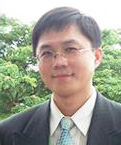
Abstract:
Many different real-world applications with a high-level of uncertainty proved the good performance of the type-2 fuzzy sets (T2 FSs). In this tutorial, we will present three read-world applications, including, game-playing, dietary assessment, and IRT-based e-learning based on type-2 fuzzy ontology and fuzzy markup language. Below is their brief descriptions:
The game of Go is a long-history board game that is much more complex than chess. The uncertainties of this game will be higher when the board size gets bigger. Therefore, a sample of games played against a computer is used to estimate the human’s strength. In order to increase the precision, the strength of the computer is adapted from one move to the next by increasing or decreasing the computational power based on the current situation and the result of games. T2FSs with parameters optimized by a genetic algorithm is used to estimate the rank in a stable manner, independently of the board size. T2FS-based adaptive linguistic assessment system infers the human performance and presents the results using the linguistic description.
Balanced diet means the intake of each necessary nutrient meets its adequate demand and actual caloric intake balances with calories burned. Additionally, making a diversity of choice from various types of food is also essential to reduce the risk of developing various chronic diseases. Different people have a different goal and it is hard to measure how healthy the eaten meal is for those who are not the domain experts on the diet. The linguistic knowledge discovery mechanism presents the discovered linguistic meaning about the meal’s health level to show the involved subjects how to make a personalized diet linguistic recommendation. This type of information about the eaten meal can provide the subjects with a reference to gradually improve their unhealthy eating habit and then become healthier and healthier.
Owing to advanced technical progress in information and communication technology, computerized adaptive assessment becomes more and more important for the personalized learning achievement. Additionally, there are many students learning their academic studies via on-line education platform with many learning materials, for example, KWS Learn (https://sites.google.com/site/kwslearn/); however, how to select learning materials that exactly fit to their competence is not easy for them. According to the response data from the conventional test and three-parameter logistic (3PL) model of the item response theory (IRT), we will combine IRT with fuzzy markup language (FML) for an adaptive assessment application and will propose an intelligent adaptive assessment platform (IAAP) to allow students to do adaptive testing to assess their learning ability. After learning, students provide a feedback to the IAAP and starts next learning iteration to achieve the goal of students’ learning progress.
Autobiography:
Chang-Shing Lee (SM’09) received the Ph.D. degree in Computer Science and Information Engineering from the National Cheng Kung University, Tainan, Taiwan, in 1998. He is currently a Professor with the Department of Computer Science and Information Engineering, National University of Tainan and he was the Dean of Research and Development Office from January 2011 to July 2015. His current research interests include adaptive assessment, intelligent agent, ontology applications, Capability Maturity Model Integration (CMMI), fuzzy theory and applications, and machine learning. He also holds several patents on Fuzzy Markup Language (FML), ontology engineering, document classification, image filtering, and healthcare.
He was the Emergent Technologies Technical Committee (ETTC) Chair of the IEEE Computational Intelligence Society (CIS) from 2009 to 2010 and the ETTC Vice-Chair of the IEEE CIS in 2008. He is also an Associate Editor or Editor Board Member of International Journals, such as IEEE Transactions on Computational Intelligence and AI in Games (IEEE TCIAIG), Applied Intelligence, Soft Computing, Journal of Ambient Intelligence & Humanized Computing (AIHC), International Journal of Fuzzy Systems (IJFS), Journal of Information Science and Engineering (JISE), and Journal of Advanced Computational Intelligence and Intelligent Informatics (JACIII). He also guest edited IEEE TCIAIG, Applied Intelligence, Journal of Internet Technology (JIT), and IJFS.
Prof. Lee was awarded the outstanding achievement in Information and Computer Education & Taiwan Academic Network (TANet) by Ministry of Education of Taiwan in 2009 and the excellent or good researcher by National University of Tainan from 2010 to 2015. Additionally, he also served the general co-chair of 2015 IEEE Conference on Computational Intelligence and Games (IEEE CIG 2015), the general chair of the 2015 Conference on Technologies and Applications of Artificial Intelligence (TAAI 2015), the program chair of the 2011 IEEE International Conference on Fuzzy Systems (FUZZ-IEEE 2011), and the competition chair of the FUZZ-IEEE 2013, the competition co-chair of the FUZZ-IEEE 2015 and 2016 IEEE World Congress on Computational Intelligence (IEEE WCCI 2016). He is also a member of the Program Committees of more than 50 conferences. He is a senior member of the IEEE CIS, a member of the Taiwanese Association for Artificial Intelligence (TAAI), and the Software Engineering Association Taiwan. He was a member of the standing committee of TAAI from 2011 to 2015 and one of the standing supervisors of Academia-Industry Consortium for Southern Taiwan Science Park from 2012 to 2013.
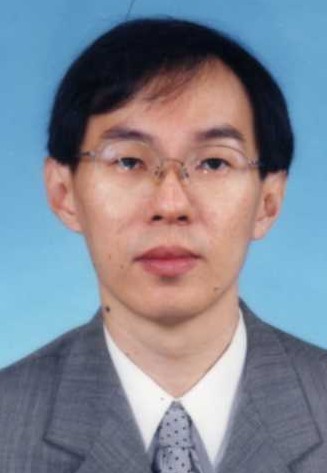
Abstract:
Data mining plays a central role in knowledge discovery. It involves applying specific algorithms to extract patterns or rules from data sets in a particular representation. Many researchers in database and machine-learning fields are interested in this new research topic since it offers opportunities to discover useful information and important relevant patterns in large databases, thus helping decision-makers analyze data easily and make good decisions regarding the domains in question. Years of effort in data mining have produced a variety of efficient techniques and applications. In this speech, I would like to present some intelligent techniques developed in our research group. They include fuzzy data mining, genetic-fuzzy data mining, incremental mining, knowledge warehouse, intelligent utility mining, intelligent web mining, privacy preserving in data mining, ontological data mining, etc. Besides, I will also introduce some interesting applications of them.
Autobiography:
Tzung-Pei Hong received his B.S. degree in chemical engineering from National Taiwan University in 1985, and his Ph.D. degree in computer science and information engineering from National Chiao-Tung University in 1992. He served at the Department of Computer Science in Chung-Hua Polytechnic Institute from 1992 to 1994, and at the Department of Information Management in I-Shou University from 1994 to 2001. He was in charge of the whole computerization and library planning for National University of Kaohsiung in Preparation from 1997 to 2000 and served as the first director of the library and computer center in National University of Kaohsiung from 2000 to 2001, as the Dean of Academic Affairs from 2003 to 2006, as the Administrative Vice President from 2007 to 2008, and as the Academic Vice President in 2010. He is currently a distinguished professor at the Department of Computer Science and Information Engineering and at the Department of Electrical Engineering, National University of Kaohsiung, and a joint professor at the Department of Computer Science and Engineering, National Sun Yat-sen University, Taiwan. He got the first national flexible wage award from Ministry of Education in Taiwan. He has published more than 500 research papers in international/national journals and conferences and has planned more than fifty information systems. His current research interests include knowledge engineering, data mining, soft computing, management information systems, and www applications.
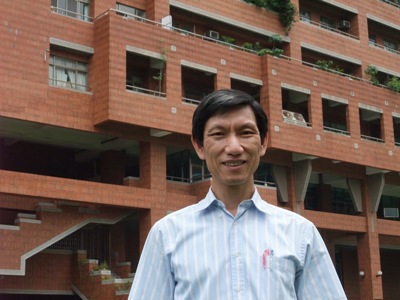
摘要
隨著電腦網路的演進與資訊科技的發展,各種網路應用已經進入我們日常生活中,變成我們生活的一部分。相對的各式網路攻擊手段與方法抑是推陳出新,以竊取機密資料進而獲得利益。近年來網路安全逐漸受到重視,愈來愈多的國家已經將網路安全納入國家安全維護的範圍。因此,對於網路與資訊安全之教育已是刻不容緩的議題。
網路攻防演練是提供使用者親自操作的方式,將原本可能在工作網路中出現的各種攻擊活動,於網路攻防平台中重現之技術,可提供研究人員進行攻擊與防禦演練的環境,強化攻擊與防禦之技術能力,以及了解攻擊原理與有效之防禦方式。首先將介紹目前常見的攻防演練模式與平台建置,並以Testbed@NCKU為實驗環境建構網路攻防演練平台,進行攻防演練範例之說明。
個人簡歷
楊竹星教授目前任職國立成功大學電機系並擔任台灣資通安全研究與教學中心 TWISC@NCKU 主任 (2011/01 - )。專長於網際網路技術、大型網路架構設計、流量監控分析與管理、軟體定義網路 (Software Defined Networking, SDN)、數位家庭、RFID、UPnP、OSGi、Android、IOS、Windows Mobile、無線網路、無線感測網路、嵌入式系統、NetFPGA 與 Internet Security 等相關領域。楊竹星教授曾經擔任國家高速網路與計算中心副主任 (2006/01 - 2008/02) 、國立中山大學工學院/資訊工程系教授 (1993/02 - 2006/07) 、國立中山大學電子計算機中心主任 (1998/08 - 2002/10) 、國立中山大學工學院/資訊工程研究所所長 (1995/08 - 1999/07) 、國立中山大學工學院/資訊工程研究所副教授 (1992/08 - 1993/01) 、國立中山大學工學院/電機工程系副教授 (1988/02 - 1992/07)。近年來發表期刊論文合計共 64 篇、2009-2014 會議論文合計共103篇;並指導學生獲得Mobileheroes 2014 通訊大賽-SDN創新應用競賽冠軍、2015 全國大專校院軟體創作競賽行動終端與應用組銅牌斗等多項獎項。
Date: 2015.12.15
闕志克(Tzi-cker Chiueh)博士
Some Suggestions on Improving Taiwan's Computer Science Research and Education

Abstract:
As software technology plays an ever increasingly important role in today's society and in the foreseeable future, Taiwan's Computer Science research and education is actually at a critical juncture, which, in my opinion, calls for a serious overhaul for its directions and contents. In this talk, I will first share with the audience my observations of the pitfalls of Taiwan's Computer Science research and education, and then offer some suggestions on how to improve upon them so that Taiwan stands a chance to effectively compete with the Computer Science community in the world.
個人簡介:
闕志克博士目前擔任工研院「資訊與通訊研究所」所長及紐約石溪大學電腦科學系教授,他曾擔任「雲端運算行動應用科技中心」的主任、賽門鐵克(Symantec)美國總部核心研究實驗室總監及美國國防先進研究計畫署(DARPA)策劃顧問,在系統軟體、網路架構與資訊安全的創新應用上研究成果豐碩,發表過相關學術文章超過220篇,並多次獲得國際性最佳論文獎殊榮。
郭大維(Tei-Wei Kuo)教授
嶄新記憶體帶來之計算機系統的硬軟體整合設計 (Software Co-Design for Computer Systems with Emerging Memory)

摘要
The emerging of various non-volatile memory has triggered rounds of innovation and also evolution of system software. The borderline between hardware and software designs become blurred in many cases. It is also getting more and more necessary for software-hardware co-design, especially for embedded systems. In this talk, software designs for flash memory and PCM in storage systems and memory management will be exploited in system optimization. In particular, we will present how to accelerate the programming of flash-memory chips, create more reliable flash-memory blocks, and reduce data transfers between the main memory and the storage. The talk will be concluded with concerns over the manipulation of data over non-volatile memory.
個人簡歷
郭大維教授 於1986年畢業於國立臺灣大學資訊工程學系, 於1994年在美國德州大學奧斯汀分校電腦科學系取得博士學位。郭教授現職為中央研究院資訊科技創新研究中心特聘研究員兼主任、與國立臺灣大學資訊工程學系/網 媒所 特聘教授。郭大維教授目前擔任科技部資訊工程學門召集人(2013-2015),曾任國立臺灣大學資訊工程學系系主任/所長與電機資訊學院副院長。郭大維教授之研究領域為嵌入式系統、即 時系統與非揮發性記憶體儲存與記憶體管理軟體設計。 郭大維教授為IEEE Fellow,著有超過200篇 已接受於國內外期刊與國際會議之學術論文。郭大維教授之學術榮譽包括三次國科會/科技部傑出研究獎與中央研究院年輕學者研究著作獎,並曾榮獲中華民國十大傑出青年與台灣大學教學傑出獎。郭大維教授現任ACM Transactions on Cyber-Physical Systems之Editor-in-Chief,並擔任許多學術會議或期刊不同職位,如IEEE Transactions on Industrial Informatics、ACM Transactions on Design Automation of Electronic Systems與IEEE Embedded Systems Letters之Associate Editor,曾任頂尖國際會議IEEE Real-Time Systems Symposium (RTSS) 之Program Chair與General Chair。
陳灯能(Deng-Neng Chen)博士
個人化資訊推薦系統之發展:從資料探勘、文字探勘到腦波分析

摘要
個人化推薦系統(Recommender System/Recommendation System)是一種基於使用者紀錄或偏好進行資料收集及分析,藉此分析結果逕行主動式資訊推薦的資訊服務系統,推薦系統在提昇個人化資訊服務品質上扮演重要的角色。傳統上推薦系統的設計著重於將資料庫中使用者的相關記錄進行分析,這也是資料探勘(Data Mining)技術的應用,並衍生出內容導向、協同導向等不同演算法為基礎的推薦系統。隨著網際網路及電子商務的普及,許多使用者的行為資料不在只是單純被紀錄於結構性的資料庫之中,而是以文字等非結構的方式被紀錄在網際網路之中,針對這些非結構的資料,文字探勘(Text Mining)的技術隨之發展,並可被應用於分析使用者的偏好,進而設計推薦系統。
近年來神經資訊學(Neuro Information Systems, NeuroIS)快速發展,認為資訊系統的開發可以結合神經科學的理論與工具,以更貼近人類認知行為模式來開發資訊系統。神經資訊學應用人體的感測設備,包括功能性磁振造影(functional Magnetic Resonance Imaging, fMRI)、正子電腦斷層造影(Positron Emission Tomography, PET)、腦電波儀(Electroencephalography, EEG)等收集受測者的大腦認知訊號,並以此進行資訊系統相關研究。我們嘗試將使用者的腦波訊號納入推薦系統的演算法設計之中,期望能提供更貼近使用者偏好的推薦服務。腦波是一種生物訊號,是人們大腦在進行某種活動時自然產生的一種訊號,可透過腦電波儀進行量測。我們首先以實驗法收集受測者腦波訊號與其興趣偏好資料,並利用類神經網路建立腦波與使用者偏好之間的關聯模型,進而以此關聯資訊為核心,開發一套結合腦波與內容導向資訊過濾為基礎的文章推薦系統,最後並以實驗法驗證本推薦系統的推薦精準度。研究結果發現,我們所開發的文章推薦系統能確實提昇推薦精準度,也證明了腦波能夠有效的被利用在推薦系統的設計上。
個人簡歷
陳灯能博士現任國立屏東科技大學資訊管理系副教授,曾兼任電子計算機中心主任、組長。陳博士於1995年取得國立交通大學資訊工程系學士學位,1997、2004年分別取得國立中山大學資訊管理碩士、博士學位,學術背景兼具資訊工程與資訊管理領域,主要研究方向包括知識工程、知識管理、電子商務與人工智慧,目前主要研究題目為利用腦波訊號建構個人化資訊推薦系統。
龔旭陽(Hsu-Yang Kung)博士
農業物聯網技術與應用

摘要
(1) 物聯網概述: 物聯網起源與定義,以及物聯網應用範例說明。(2) 物聯網技術簡介: 物聯網階層架構、物聯網核心技術以及物聯網推動組織標準說明。(3) 農業物聯網應用範例: 包括智慧葡萄栽培計劃(西班牙)、中農水產養殖系統(大陸)、植物工廠(日本)、屏東優質水產品網路行銷銷售服務平台、動物健康與安全管理以及紅樹林生態感測系統(屏科大資管系)等農業物連應用系統案例說明。
個人簡歷
龔旭陽(Hsu-Yang Kung) 博士 自1992年起任職於國立屏東科技大學資訊管理系,曾任資管系系主任、電算中心主任,現職為該系教授兼管理學院院長。龔博士畢業台灣國立成功大學資訊工程系,研究興趣與專長主要為物聯網技術與應用、雲端運算、行動式通訊、農業資訊系統、車載資通訊系統、多媒體通訊應用系統、資訊管理系統等。
龔博士致力於開放式資訊應用系統研發與人才培育,研究績效截至目前為止共發表了 74篇期刊論文,202 篇研討會論文,其中包括曾獲全國研究論文獎11件,並於 2013 年合著出版一本網路通訊相關教科書。另龔博士研究成果曾獲6 次國科會自由軟體計畫績優團隊獎、2006年第四屆Linux 黃金企鵝獎人才貢獻獎、2005年第三屆Linux 黃金企鵝獎研發創新獎,以及國立屏東科技大學98年度管理學院傑出研究教師獎等獎項。其他研究績效包括全國與大陸發明專利 24 件、教學與人才培育績效包括全國性傑出與優良教材設計 2 件。此外指導學生參加國際性系統競賽獲獎 5 件,全國性專題與系統設計競賽獲獎 79件。龔博士自 2000年起連續 16 年獲得國立屏東科技大學研究獎勵,並獲98年度國立屏東科技大學傑出研究教師(管理學院),另榮獲99~103年度5次國科會補助大專校院獎勵特殊優秀人才第一級獎勵。相關國科會整合型計畫成果獲國科會開放軟體計畫辦公室推薦參加" 2013年台北國際發明暨技術交易展"與103年度教育部技專院校優質研發成果獎等。此外龔博士亦受邀擔任IEEE Technology and Engineering Education等國際期刊客座編輯,以及國內外期刊(包括IEEE Transactions on Information Technology in Biomedicine等)與國內外研討會論文審稿委員。
龔博士社會服務經歷,含擔任教育部系所評鑑委員、教育通訊改進計畫訪視委員、國科會專題研究計畫審查委員、研究計畫複審委員、屏東縣政府資訊總顧問、東縣有線廣播電視系統費率委員會委員、屏東縣公共圖書館輔導推動委員會訪視委員、縣市政府資訊系統評選委員、經濟部工業局研發貸款技審會委員、經濟部技審委員會專家、經濟部金屬中心學界協助中小企業科技關懷計畫輔導專家、經濟部技術處SBIR計畫資通領域主審委員、行政院勞委會職訓局諮詢輔導團委員與計畫審查與評鑑委員、科學工業園區人才培育計畫訪視委員以及台灣消費者保護協會(台灣消保會)資訊科技專業委員會等。
楊家輝(Jar-Ferr Yang)博士
Recent Developments of 3D Broadcasting Technologies

In the past three years, we have conducted a project entitled: “Development of Basic Technologies for Creative 3D Contents and 3D Display Systems.” In this talk, I will briefly overview the project, which is composed of three important parts including 3D display engine, 3D cloud GPU, and 3D content generation. Currently, we propose a category of centralized texture-depth packing (CTDP) formats for delivering 3D video services. With AVS2 and HEVC video coder, the proposed CTDP formats show better objective and subjective visual quality in 2D and 3D displays than the 2DDP format. If the texture and depth frame are packed in the CTDP formats and then coded by the HEVC, which is called CTDP-HEVC. By simulations, the CTDP-HEVC is compared with the 3D-HEVC, the latest 3D video coding standard. Before the availabilities of 3D-HEVC broadcasting systems, we believe that the proposed CTDP formats could help to deliver 3D videos in the current 2D broadcasting systems simply and efficiently.
Autobiography:
Jar-Ferr Yang received his BS degree from the Chung-Yuan Christian University in 1977, MS degree from the National Taiwan University, Taiwan in 1979, and Ph. D. degree from the University of Minnesota, Minneapolis, USA in 1988. He was the Chairperson of Graduate Institute of Computer and Communication Engineering during 2004 – 2008 and the Director of the Electrical and Information Technology Center 2006 -2008 in NCKU. He was the Associate Vice President for Research and Development of the NCKU. Currently, he is a Distinguished Professor and the Director of Technologies of Ubiquitous Computing and Humanity (TOUCH) Center supported by National Science Council (NSC), Taiwan. Furthermore, he is and the Director of Tomorrow Ubiquitous Cloud and Hypermedia (TOUCH) Service Center.
During 2004-2005m he was the Distinguished Lecturer Program of the IEEE Circuits and Systems Society. In 2008, he received the NSC Excellent Research Award. In 2010, he received the Outstanding Electrical Engineering Professor Award of the Chinese Institute of Electrical Engineering, Taiwan. He was the Chairman of IEEE Tainan Section during 2009-2011. Currently, he is an Associate Editor of EURASIP Journal of Advances in Signal Processing and an Editorial Board Member of IET Signal Processing. He has published over 104 journal and 167 conference papers. He is a Fellow of IEEE.
張傳育(Chuan-Yu Chang)教授
Application of Computational Intelligences for Thyroid Segmentation and Volume Estimation

Abstract:
Thyroid region segmentation and volume estimation is a prerequisite step to diagnosing the pathology of the thyroid gland. In clinical, the thyroids are hand-marked from medical images such ultrasound (US) images or computerized tomography (CT) images. This approach relies heavily on the experience of the physicians and is very time consuming. In this talk, two computational intelligences were applied to segment the thyroid gland and to estimate the volume form CT and US, respectively. Experimental results show that the proposed method can effectively segment thyroid glands and estimate thyroid volume.
Autobiography:
Chuan-Yu Chang (張傳育) received the Ph.D. degree in electrical engineering from National Cheng Kung University, Taiwan, in 2000. He is currently a Distinguished Professor at the Department of Computer Science and Information Engineering and Dean of Research & Development, National Yunlin University of Science and Technology. He serves as an Associate Editor of the Multidimensional Systems and Signal Processing, and International Journal of Control Theory and Applications. His current research interests include computational intelligence and their applications to medical image processing, wafer defect inspection, emotion recognition, and pattern recognition. In the above areas, he has more than 150 publications in journals and conference proceedings.
Dr. Chang received the excellent paper award of the Image Processing and Pattern Recognition society of Taiwan in 1999, 2001, and 2009. He was also the recipient of the Best Paper Award in the International Computer Symposium in 1998 and 2010, the Best Paper Award in the Conference on Artificial Intelligence and Applications in 2001, 2006, 2007, and 2008, and the Best Paper Award in National Computer Symposium in 2005. He received the Best Paper Award from the Symposium on Digital Life Technologies in 2010, 2012, and 2014. He also received the Best Paper Award from the Ninth International Conference on Intelligent Information Hiding and Multimedia Signal Processing in 2013. He served as the Program co-Chair of 2007 Conference on Artificial Intelligence and Applications, 2009 Chinese Image Processing and Pattern Recognition Society (IPPR) Conference on Computer Vision, Graphics, and Image Processing, 2010-2015 International Workshop on Intelligent Sensors and Smart Environments, and the third International Conference on Robot, Vision and Signal Processing (RVSP 2015). He served as General co-chair of 2012 International Conference on Information Security and Intelligent Control, 2011-2013 Workshop on Digital Life Technologies, and Finance co-chair of 2013 International Conference on Information, Communications and Signal Processing.
He is a Life Member of IPPR, TAAI, and a senior Member of IEEE. He is the chair of IEEE Signal Processing Society Tainan Chapter and the Representative for Region 10 of IEEE SPS Chapters Committee.
林豪鏘(Hao-Chiang Lin)博士
情感運算與互動式數位內容

摘要
在Web2.0時代,情緒智慧 (Emotional Intelligence) 已成為學習與教育領域愈來愈重要的議題。透過情緒的偵測與判斷,我們更能掌握學習者的學習與情緒狀態。在相關議題中,情感運算 (Affective Computing) 經由文字、表情、聲調、生理訊號等線索,可以有效識別使用者的情緒。這樣的技術,經常運用在機器人 (Robotics) 的情緒產生與情緒表達上,並可以扮演智慧型數位家教 (Intelligent e-Tutor) 與代理人(Agent) 的角色,透過學習同伴 (Learning Companion) 的功能,達到情感學習(Affective Learning),協助使用者在學習等方面的改善。常見的實施平台,是運用人工智慧技術設計的智慧型家教系統 (ITS; Intelligent Tutoring System),進而情感式家教系統 (ATS; Affective Tutoring System)。此外,計算語言學 (Computational Linguistics) 與自然語言處理 (Natural Language Processing) 同時也提供了情感運算裏情緒識別的重要線索。本次演講將分享本實驗室在ATS上的一些發展。除此之外,本演講將介紹一些展示科技與數位藝術的議題,諸如:建築物光雕、錄像投影、互動裝置、數位表演藝術、體感偵測、眼動分析、擴增實境、浮空投影等。
個人簡歷
林豪鏘為國立清華大學資訊科學博士,台中一中畢業。目前擔任國立臺南大學學務長,並曾擔任國立臺北商業大學創新經營學院院長,並任教於國立臺南大學 (數位學習科技系教授),並擔任數位藝術與互動設計實驗室主持人。在此之前,他曾先後擔任資訊長、造形藝術所所長,對於資訊科技與數位內容的整合,具有不錯的實務經驗。他目前為台灣科技藝術教育協會副理事長、台灣科技藝術學會副秘書長、科技部創新學習軟體設計主題研究群召集人、中華民國資訊管理學會理事、中華民國數位內容學會常務理事、中華民國視覺藝術協會理事、ISAC中華民國大專校院資訊服務協會理事,曾多次在各種藝術展演擔任參展藝術家、評審、導覽專家、策展、影評人等等 (例如:台北數位藝術獎、國際新媒體藝術節、藝術家博覽會等),亦曾多次在各種資訊實務競賽擔任評審 (例如:IT應用創新大賞評審、全國大專資管專題競賽、南區技專院校產學合作實務專題競賽等)。他曾擔任頂尖期刊 ET&S (SSCI) Guest Editor, 數次擔任國際期刊審稿委員或編輯委員 (例如:ET&S、ETR&D、TOJET、DSS、IJEB、JSMS、ECS等),並多次擔任學術研討會之主辦人、議程委員、會議主持人等 (例如:GCCCE2015, IETC2011, Educatainment2011, ICIM2015, ICS2012, ICCE2014, ICDC2013, JEL2010, IMP2014, ICWE2010等)。1997-2004曾任教於明新科技大學,先後擔任過資管系主任、資管所所長、資工系主任、電算中心主任等職務。此外,曾於國立清華大學、國立交通大學擔任兼任副教授,並曾服務於鑑榮資訊公司,負責數位學習網路評量系統之建置發展、ICPADS視覺創意總監等職務。
李健興( Chang-Shing Lee)博士
Type-2 Fuzzy Ontology and Fuzzy Markup Language for Real-World Applications

Abstract:
Many different real-world applications with a high-level of uncertainty proved the good performance of the type-2 fuzzy sets (T2 FSs). In this tutorial, we will present three read-world applications, including, game-playing, dietary assessment, and IRT-based e-learning based on type-2 fuzzy ontology and fuzzy markup language. Below is their brief descriptions:
The game of Go is a long-history board game that is much more complex than chess. The uncertainties of this game will be higher when the board size gets bigger. Therefore, a sample of games played against a computer is used to estimate the human’s strength. In order to increase the precision, the strength of the computer is adapted from one move to the next by increasing or decreasing the computational power based on the current situation and the result of games. T2FSs with parameters optimized by a genetic algorithm is used to estimate the rank in a stable manner, independently of the board size. T2FS-based adaptive linguistic assessment system infers the human performance and presents the results using the linguistic description.
Balanced diet means the intake of each necessary nutrient meets its adequate demand and actual caloric intake balances with calories burned. Additionally, making a diversity of choice from various types of food is also essential to reduce the risk of developing various chronic diseases. Different people have a different goal and it is hard to measure how healthy the eaten meal is for those who are not the domain experts on the diet. The linguistic knowledge discovery mechanism presents the discovered linguistic meaning about the meal’s health level to show the involved subjects how to make a personalized diet linguistic recommendation. This type of information about the eaten meal can provide the subjects with a reference to gradually improve their unhealthy eating habit and then become healthier and healthier.
Owing to advanced technical progress in information and communication technology, computerized adaptive assessment becomes more and more important for the personalized learning achievement. Additionally, there are many students learning their academic studies via on-line education platform with many learning materials, for example, KWS Learn (https://sites.google.com/site/kwslearn/); however, how to select learning materials that exactly fit to their competence is not easy for them. According to the response data from the conventional test and three-parameter logistic (3PL) model of the item response theory (IRT), we will combine IRT with fuzzy markup language (FML) for an adaptive assessment application and will propose an intelligent adaptive assessment platform (IAAP) to allow students to do adaptive testing to assess their learning ability. After learning, students provide a feedback to the IAAP and starts next learning iteration to achieve the goal of students’ learning progress.
Autobiography:
Chang-Shing Lee (SM’09) received the Ph.D. degree in Computer Science and Information Engineering from the National Cheng Kung University, Tainan, Taiwan, in 1998. He is currently a Professor with the Department of Computer Science and Information Engineering, National University of Tainan and he was the Dean of Research and Development Office from January 2011 to July 2015. His current research interests include adaptive assessment, intelligent agent, ontology applications, Capability Maturity Model Integration (CMMI), fuzzy theory and applications, and machine learning. He also holds several patents on Fuzzy Markup Language (FML), ontology engineering, document classification, image filtering, and healthcare.
He was the Emergent Technologies Technical Committee (ETTC) Chair of the IEEE Computational Intelligence Society (CIS) from 2009 to 2010 and the ETTC Vice-Chair of the IEEE CIS in 2008. He is also an Associate Editor or Editor Board Member of International Journals, such as IEEE Transactions on Computational Intelligence and AI in Games (IEEE TCIAIG), Applied Intelligence, Soft Computing, Journal of Ambient Intelligence & Humanized Computing (AIHC), International Journal of Fuzzy Systems (IJFS), Journal of Information Science and Engineering (JISE), and Journal of Advanced Computational Intelligence and Intelligent Informatics (JACIII). He also guest edited IEEE TCIAIG, Applied Intelligence, Journal of Internet Technology (JIT), and IJFS.
Prof. Lee was awarded the outstanding achievement in Information and Computer Education & Taiwan Academic Network (TANet) by Ministry of Education of Taiwan in 2009 and the excellent or good researcher by National University of Tainan from 2010 to 2015. Additionally, he also served the general co-chair of 2015 IEEE Conference on Computational Intelligence and Games (IEEE CIG 2015), the general chair of the 2015 Conference on Technologies and Applications of Artificial Intelligence (TAAI 2015), the program chair of the 2011 IEEE International Conference on Fuzzy Systems (FUZZ-IEEE 2011), and the competition chair of the FUZZ-IEEE 2013, the competition co-chair of the FUZZ-IEEE 2015 and 2016 IEEE World Congress on Computational Intelligence (IEEE WCCI 2016). He is also a member of the Program Committees of more than 50 conferences. He is a senior member of the IEEE CIS, a member of the Taiwanese Association for Artificial Intelligence (TAAI), and the Software Engineering Association Taiwan. He was a member of the standing committee of TAAI from 2011 to 2015 and one of the standing supervisors of Academia-Industry Consortium for Southern Taiwan Science Park from 2012 to 2013.
洪宗貝(Tzung-Pei Hong)博士
智慧型資料探勘 (Intelligent Data Mining)

Abstract:
Data mining plays a central role in knowledge discovery. It involves applying specific algorithms to extract patterns or rules from data sets in a particular representation. Many researchers in database and machine-learning fields are interested in this new research topic since it offers opportunities to discover useful information and important relevant patterns in large databases, thus helping decision-makers analyze data easily and make good decisions regarding the domains in question. Years of effort in data mining have produced a variety of efficient techniques and applications. In this speech, I would like to present some intelligent techniques developed in our research group. They include fuzzy data mining, genetic-fuzzy data mining, incremental mining, knowledge warehouse, intelligent utility mining, intelligent web mining, privacy preserving in data mining, ontological data mining, etc. Besides, I will also introduce some interesting applications of them.
Autobiography:
Tzung-Pei Hong received his B.S. degree in chemical engineering from National Taiwan University in 1985, and his Ph.D. degree in computer science and information engineering from National Chiao-Tung University in 1992. He served at the Department of Computer Science in Chung-Hua Polytechnic Institute from 1992 to 1994, and at the Department of Information Management in I-Shou University from 1994 to 2001. He was in charge of the whole computerization and library planning for National University of Kaohsiung in Preparation from 1997 to 2000 and served as the first director of the library and computer center in National University of Kaohsiung from 2000 to 2001, as the Dean of Academic Affairs from 2003 to 2006, as the Administrative Vice President from 2007 to 2008, and as the Academic Vice President in 2010. He is currently a distinguished professor at the Department of Computer Science and Information Engineering and at the Department of Electrical Engineering, National University of Kaohsiung, and a joint professor at the Department of Computer Science and Engineering, National Sun Yat-sen University, Taiwan. He got the first national flexible wage award from Ministry of Education in Taiwan. He has published more than 500 research papers in international/national journals and conferences and has planned more than fifty information systems. His current research interests include knowledge engineering, data mining, soft computing, management information systems, and www applications.
楊竹星(Chu-Sing Yang)博士
網路攻擊與防禦平台之介紹

摘要
隨著電腦網路的演進與資訊科技的發展,各種網路應用已經進入我們日常生活中,變成我們生活的一部分。相對的各式網路攻擊手段與方法抑是推陳出新,以竊取機密資料進而獲得利益。近年來網路安全逐漸受到重視,愈來愈多的國家已經將網路安全納入國家安全維護的範圍。因此,對於網路與資訊安全之教育已是刻不容緩的議題。
網路攻防演練是提供使用者親自操作的方式,將原本可能在工作網路中出現的各種攻擊活動,於網路攻防平台中重現之技術,可提供研究人員進行攻擊與防禦演練的環境,強化攻擊與防禦之技術能力,以及了解攻擊原理與有效之防禦方式。首先將介紹目前常見的攻防演練模式與平台建置,並以Testbed@NCKU為實驗環境建構網路攻防演練平台,進行攻防演練範例之說明。
個人簡歷
楊竹星教授目前任職國立成功大學電機系並擔任台灣資通安全研究與教學中心 TWISC@NCKU 主任 (2011/01 - )。專長於網際網路技術、大型網路架構設計、流量監控分析與管理、軟體定義網路 (Software Defined Networking, SDN)、數位家庭、RFID、UPnP、OSGi、Android、IOS、Windows Mobile、無線網路、無線感測網路、嵌入式系統、NetFPGA 與 Internet Security 等相關領域。楊竹星教授曾經擔任國家高速網路與計算中心副主任 (2006/01 - 2008/02) 、國立中山大學工學院/資訊工程系教授 (1993/02 - 2006/07) 、國立中山大學電子計算機中心主任 (1998/08 - 2002/10) 、國立中山大學工學院/資訊工程研究所所長 (1995/08 - 1999/07) 、國立中山大學工學院/資訊工程研究所副教授 (1992/08 - 1993/01) 、國立中山大學工學院/電機工程系副教授 (1988/02 - 1992/07)。近年來發表期刊論文合計共 64 篇、2009-2014 會議論文合計共103篇;並指導學生獲得Mobileheroes 2014 通訊大賽-SDN創新應用競賽冠軍、2015 全國大專校院軟體創作競賽行動終端與應用組銅牌斗等多項獎項。



